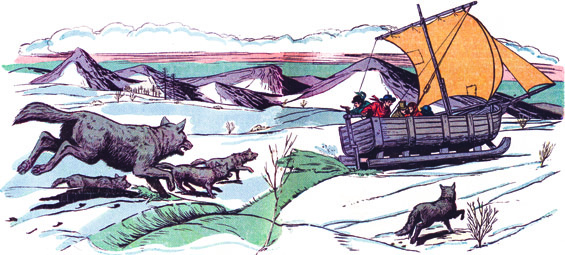
Alan Moore, appearing on the BBC 4 (television) programme Comics Britannia talking about V For Vendetta, Watchmen, The League Of Extraordinary Gentlemen and Lost Girls.
Posted by Jesse Willis

Alan Moore, appearing on the BBC 4 (television) programme Comics Britannia talking about V For Vendetta, Watchmen, The League Of Extraordinary Gentlemen and Lost Girls.
Posted by Jesse Willis

 Here’s a fun, and approximately antipodean, compliment to Jack London’s stupendous novel The Call Of The Wild. Set in 1880s South Africa, it is a set of semi-fictional stories about an English Staffordshire Bull Terrier named Jock. According to a book called National Character In South African Children’s Literature it was none other than Rudyard Kipling who persuaded James Percy Fitzpatrick to collect his Jock tales in book form. Now that is quite a provenance!
Here’s a fun, and approximately antipodean, compliment to Jack London’s stupendous novel The Call Of The Wild. Set in 1880s South Africa, it is a set of semi-fictional stories about an English Staffordshire Bull Terrier named Jock. According to a book called National Character In South African Children’s Literature it was none other than Rudyard Kipling who persuaded James Percy Fitzpatrick to collect his Jock tales in book form. Now that is quite a provenance!
 Jock Of The Bushveld
Jock Of The Bushveld
By Sir Percy Fitzpatrick; Read by various
28 Zipped MP3 Files or Podcast – Approx. 12 Hours 46 Minutes [UNABRIDGED]
Publisher: LibriVox.org
Publisher: March 19, 2010
Jock of the Bushveld is a true story by South African author Sir Percy Fitzpatrick when he worked as a storeman, prospector’s assistant, journalist and ox-wagon transport-rider. The book tells of Fitzpatrick’s travels with his dog, Jock, during the 1880s. Jock was saved by Fitzpatrick from being drowned in a bucket for being the runt of the litter. Jock was very loyal towards Percy, and brave. Jock was an English Staffordshire Bull Terrier.
Podcast feed: http://librivox.org/rss/3952
iTunes 1-Click |SUBSCRIBE|
Posted by Jesse Willis

 I get the sense that Rastignac The Devil is a satire, using the furniture of Alexandre Dumas’ The Three Musketeers. But I feel really embarrassed about not knowing what is going on, sub-textually, in this interesting, but baffling, novella by Philip José Farmer. Is it all an allegorical satire of some event in 17th century France?
I get the sense that Rastignac The Devil is a satire, using the furniture of Alexandre Dumas’ The Three Musketeers. But I feel really embarrassed about not knowing what is going on, sub-textually, in this interesting, but baffling, novella by Philip José Farmer. Is it all an allegorical satire of some event in 17th century France?
A couple of other notes. Mike Resnick’s Starship series has a character named “Slick.” Slick is an alien with a sentient symbiotic skin (called a “gorib”). Rastignac The Devil has aliens and humans with just such a similar concept – very cool! Gregg Margarite, the narrator, does a very good job with the abundance of French words.
Anyway, like I said, I liked the story, thought it was weirdly cool, but don’t feel like I’ve understood it at all. Could someone fill me in?
 Rastignac The Devil
Rastignac The Devil
By Philip José Farmer; Read by Gregg Margarite
2 Zipped MP3 Files or Podcast – Approx. 1 Hour 59 Minutes [UNABRIDGED]
Publisher: LibriVox.org
Published: March 19, 2010
Here is high fidelity fiction at Philip José Farmer’s story-telling best. It’s a vibrant, distractingly different tale of three centuries into the future. And as you read you’ll have a vague, uneasy feeling that it’s all taking place somewhere in the unexplored parts of the universe, even today. From Fantastic Universe May 1954.
Podcast feed: http://librivox.org/rss/4158
iTunes 1-Click |SUBSCRIBE|
[Thanks also to Barry Eads (aka KiltedDragon)]
Posted by Jesse Willis

 There’s an old NPR/WNYC piece on Blade Runner that casts the fear of Nexus 6 androids on Earth as a kind of allegory for racism and slavery. Perhaps we could coin a term for this. How about, “The Plastic Peril”? Although that sounds a bit too much like a reference to Autons.
There’s an old NPR/WNYC piece on Blade Runner that casts the fear of Nexus 6 androids on Earth as a kind of allegory for racism and slavery. Perhaps we could coin a term for this. How about, “The Plastic Peril”? Although that sounds a bit too much like a reference to Autons.
Dreams Of Electric Sheep
By Phillip Martin
June 29, 2007
25 years ago this week, Blade Runner debuted in American theaters. It was set in a Los Angeles of the future, but its portrayals of race and racism had plenty of resonance in 1982. Reporterlooks back on a classic of cyborgian social criticism.
|MP3|
[via HuffDuffer and Adactio]
Posted by Jesse Willis

 Entitled Opinions is a radio program (and podcast) from Stanford university’s radio station KZSU. In discussion from a program in May 2009 are the editors of
Entitled Opinions is a radio program (and podcast) from Stanford university’s radio station KZSU. In discussion from a program in May 2009 are the editors of
The Re-Enchantment of the World: Secular Magic in a Rational Age: Joshua Landy (a professor of French at Stanford) and Michael Saler (professor of history at the UC Davis). Together they are responding to Max Weber’s famous statement:
“The fate of our times is characterized by rationalization and intellectualization, and, above all, by the ‘disenchantment of the world.’ —Max Weber
This concept, disenchantment (entzauberung), was introduced by Weber to describe the character of his modernized, and increasingly secularized society, where scientific understanding had become more highly valued than religious belief. In their discussion Saler and Landy ask questions like:
‘Do all philosophical inquiries begin in wonder?’
‘Why does Science Fiction take off as a genre?’
‘Can we replace God and the Devil with Sherlock Holmes’ rationality and Moriarty’s criminality?’
‘Is the hierarchy of Middle Earth something we’d like to see in our world?’
It’s a fascinating discussion! |MP3|
Posted by Jesse Willis

 I like it when SFFaudio gets cited on Wikipedia. One of the citations there is a point I made about The Green Odyssey |READ OUR REVIEW| and the Dungeons & Dragons module Dragonlance: DL6 Dragons of Ice. I compared The Green Odyssey‘s roller-ships (a kind of wind powered land ship) with the iceboats of Dragons Of Ice And it was just yesterday I came across another similar variant on the sail-powered-terrestrial-ship:
I like it when SFFaudio gets cited on Wikipedia. One of the citations there is a point I made about The Green Odyssey |READ OUR REVIEW| and the Dungeons & Dragons module Dragonlance: DL6 Dragons of Ice. I compared The Green Odyssey‘s roller-ships (a kind of wind powered land ship) with the iceboats of Dragons Of Ice And it was just yesterday I came across another similar variant on the sail-powered-terrestrial-ship:
“Mr. Fogg examined a curious vehicle, a kind of frame on two long beams, a little raised in front like the runners of a sledge, and upon which there was room for five or six persons. A high mast was fixed on the frame, held firmly by metallic lashings, to which was attached a large brigantine sail. This mast held an iron stay upon which to hoist a jib-sail. Behind, a sort of rudder served to guide the vehicle. It was, in short, a sledge rigged like a sloop. During the winter, when the trains are blocked up by the snow, these sledges make extremely rapid journeys across the frozen plains from one station to another. Provided with more sails than a cutter, and with the wind behind them, they slip over the surface of the prairies with a speed equal if not superior to that of the express trains.”
-From Around The World In Eighty Days (chapter XXXI) by Jules Verne
Here’s an image of it from a Golden Picture Classic edition of Around The World In Eighty Days:

 Around The World in Eighty Days
Around The World in Eighty Days
By Jules Verne; Read by Mark F. Smith
37 Zipped MP3 Files or Podcast – Approx. 6 Hours 33 Minutes [UNABRIDGED]
Publisher: LibriVox.org
Published: April 16, 2008
Mysterious Phileas Fogg is a cool customer. A man of the most repetitious and punctual habit – with no apparent sense of adventure whatsoever – he gambles his considerable fortune that he can complete a journey around the world in just 80 days… immediately after a newspaper calculates the feat as just barely possible. With his excitable French manservant in tow, Fogg undertakes the exercise immediately, with no preparations, trusting that his traveling funds will make up for delays along the way. But unbeknownst to him, British police are desperately seeking to arrest him for the theft of a huge sum by someone who resembles him, and they will track him around the world, if necessary, to apprehend him. This is an adventure novel of the first water, with wholly unexpected perils, hair-breadth escapes, brilliant solutions to insoluble problems, and even a love story. And can this be? – That he returns to London just five minutes too late to win his wager and retain his fortune?
Podcast feed:
http://librivox.org/bookfeeds/around-the-world-in-80-days-by-jules-verne-2.xml
iTunes 1-Click |SUBSCRIBE|
Posted by Jesse Willis